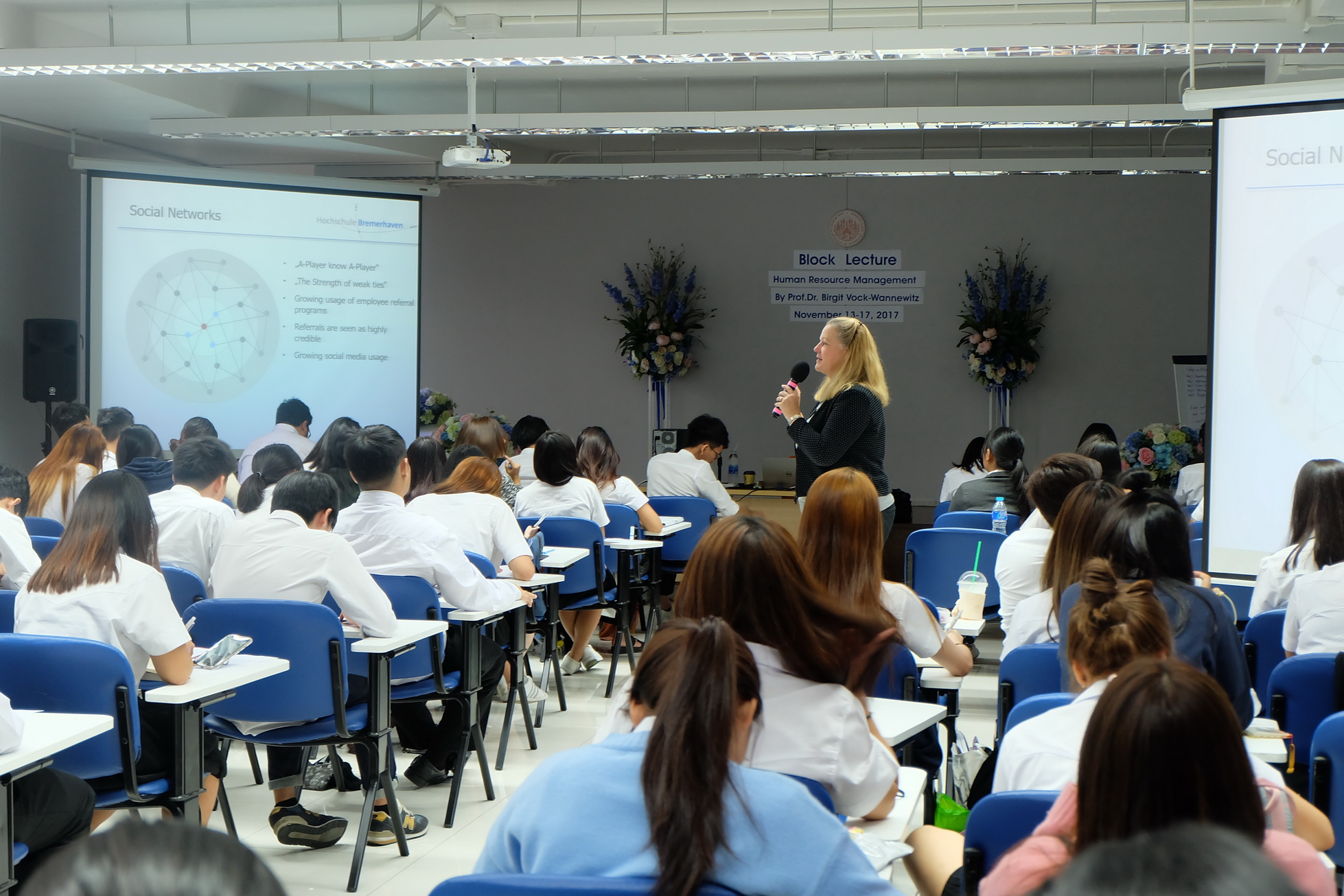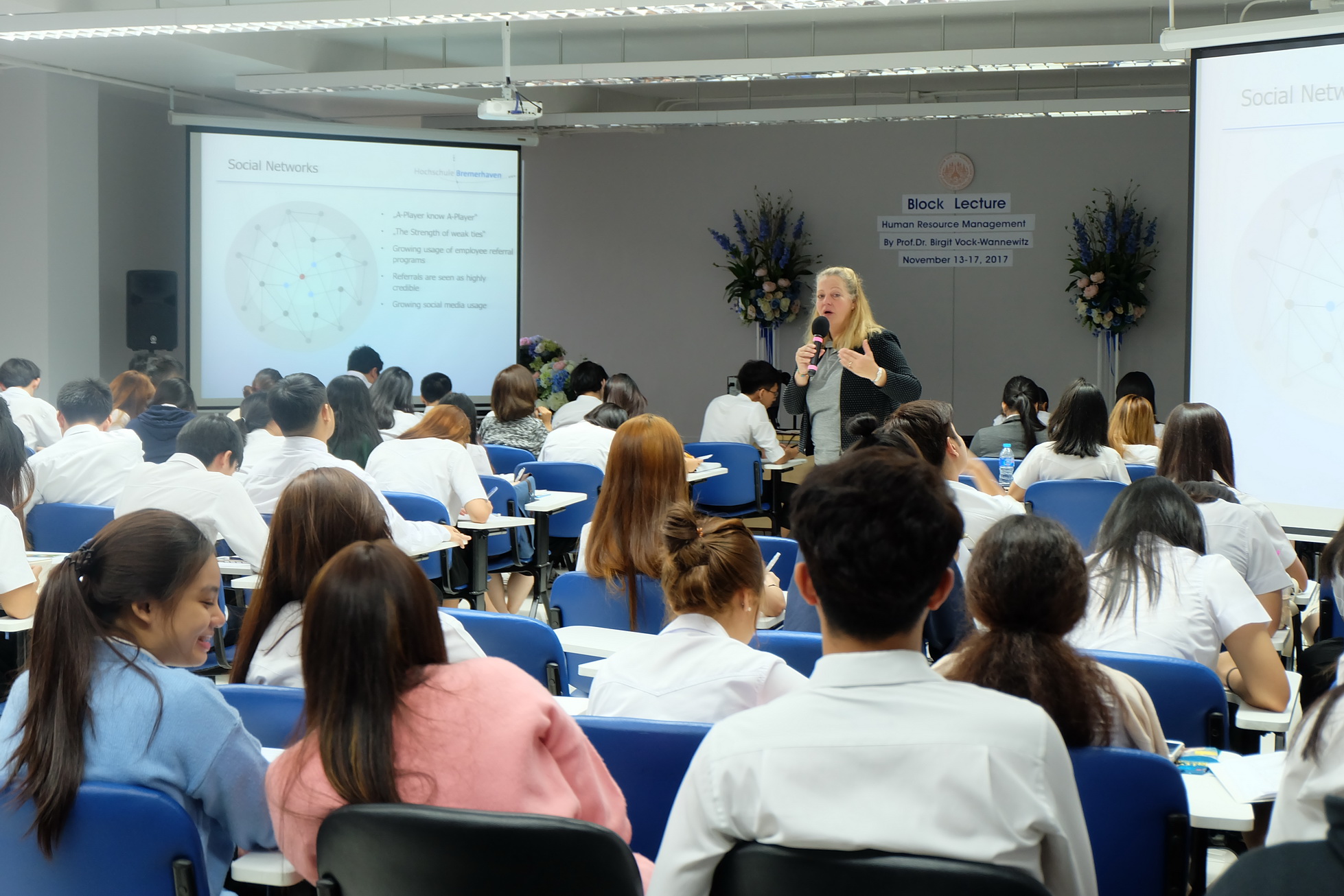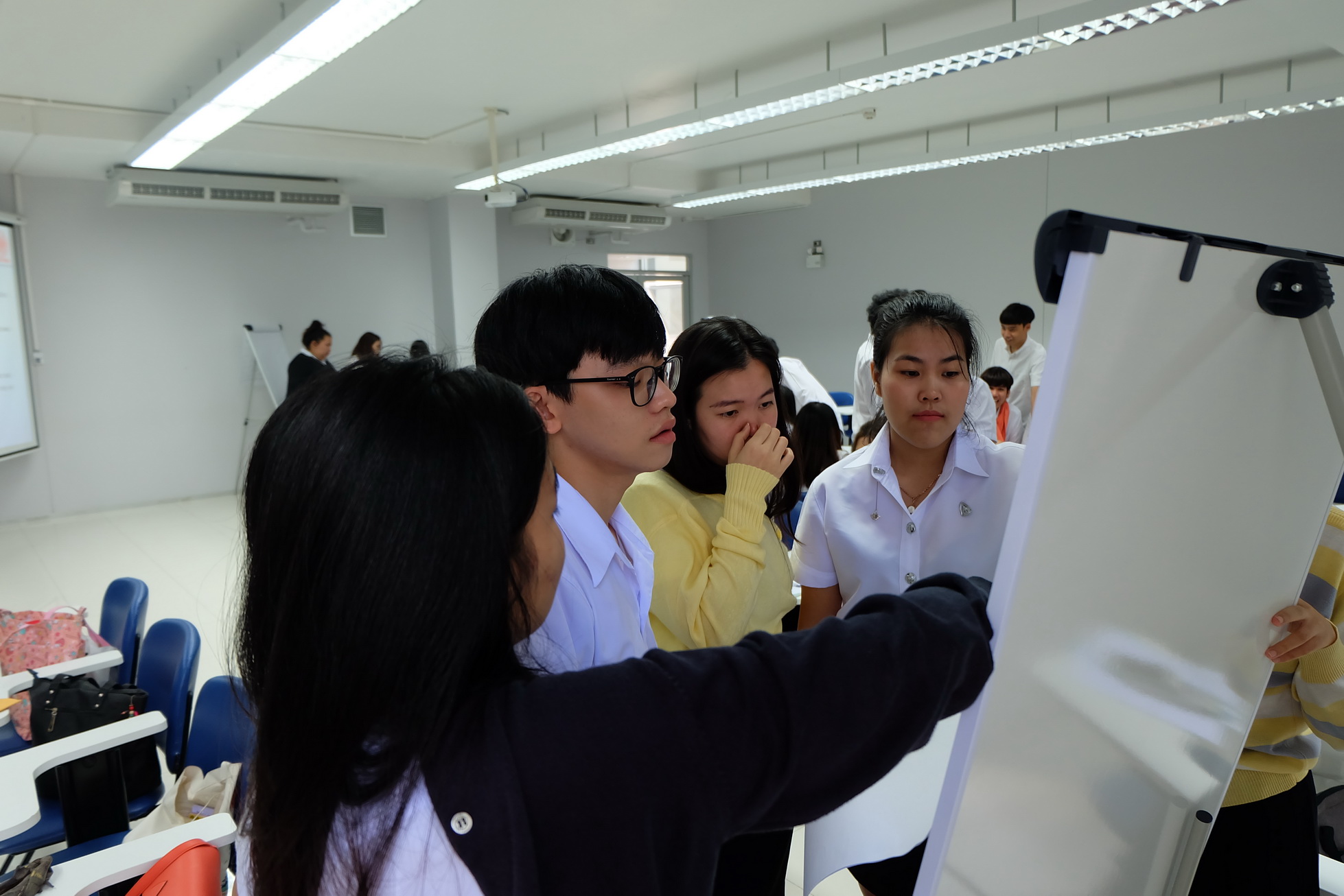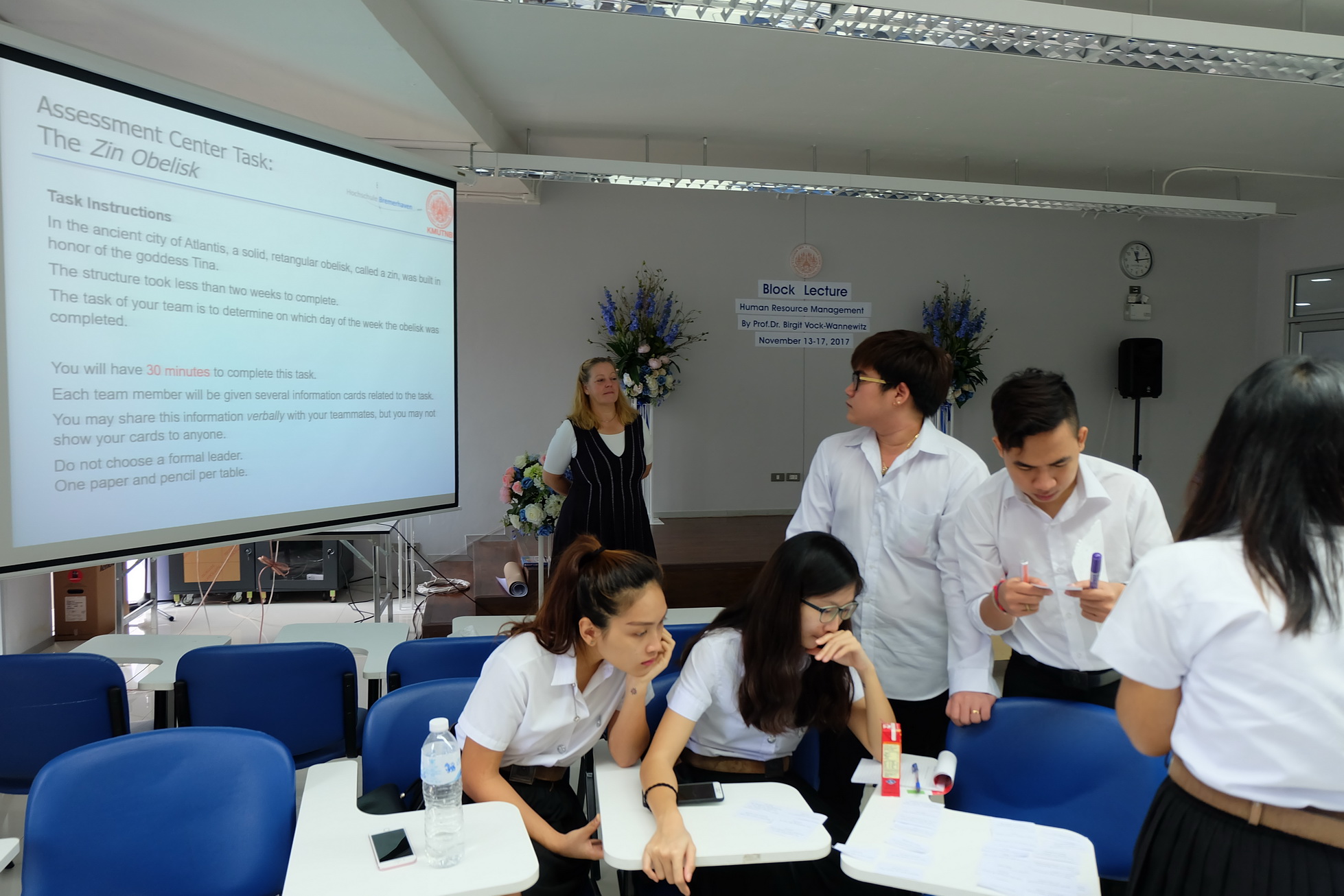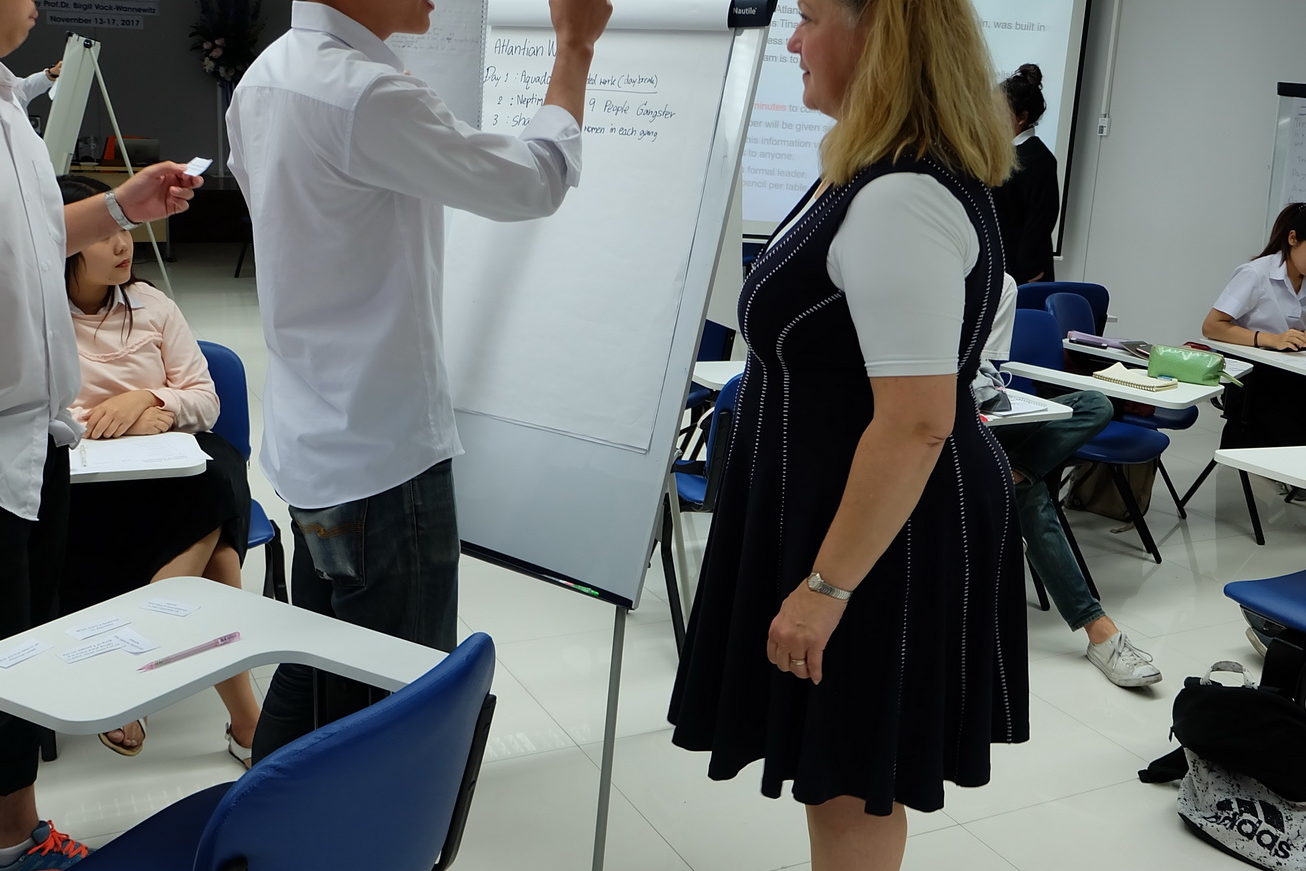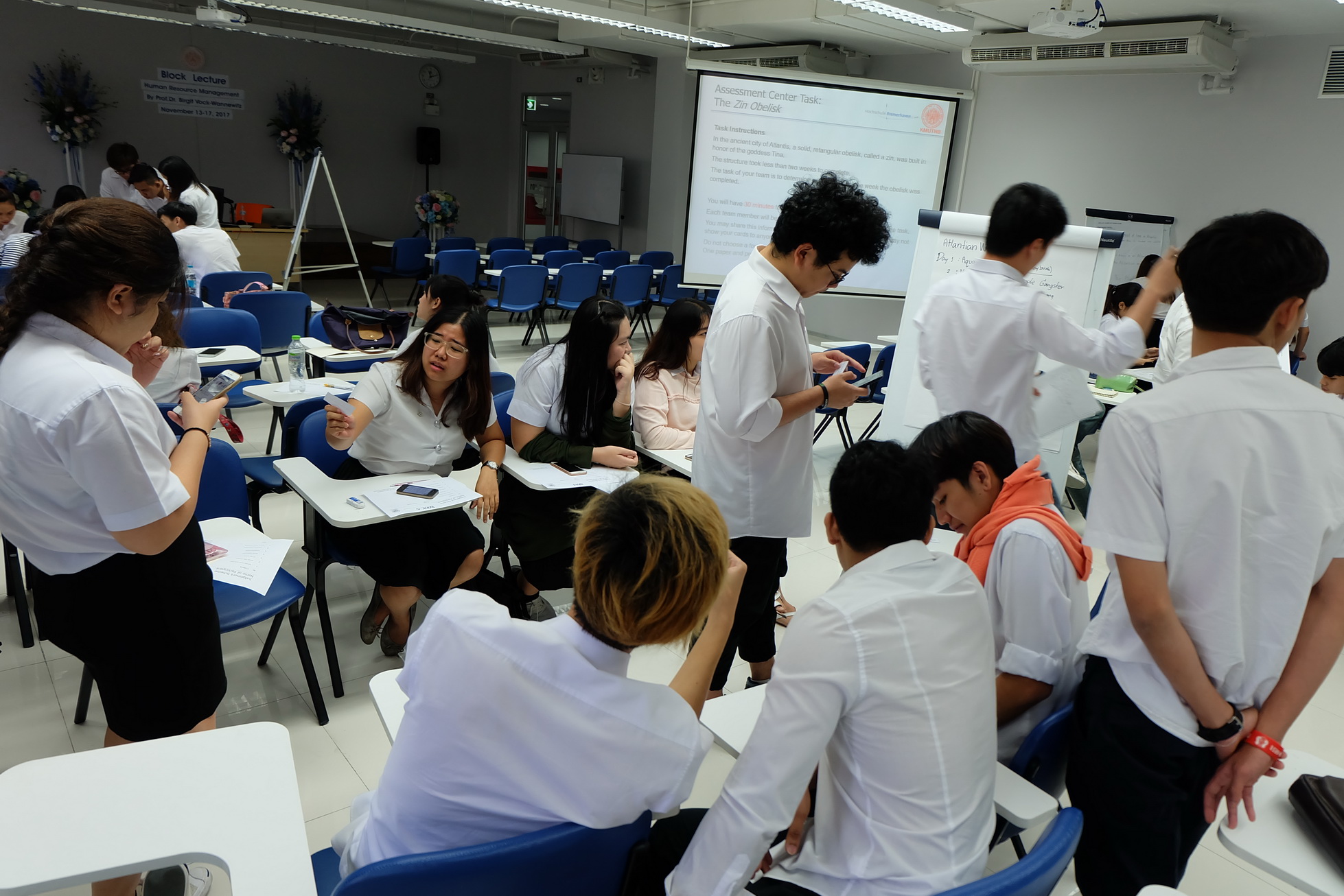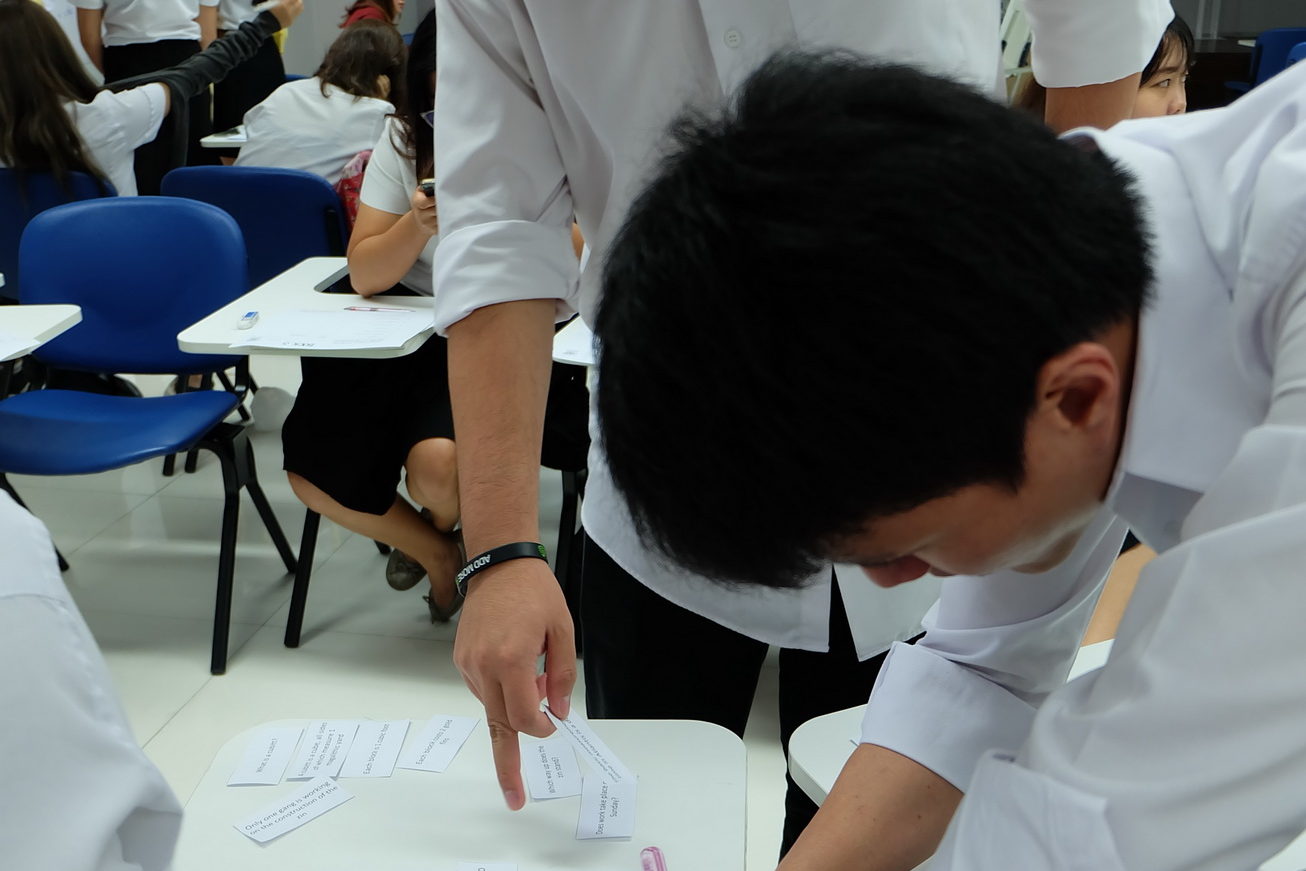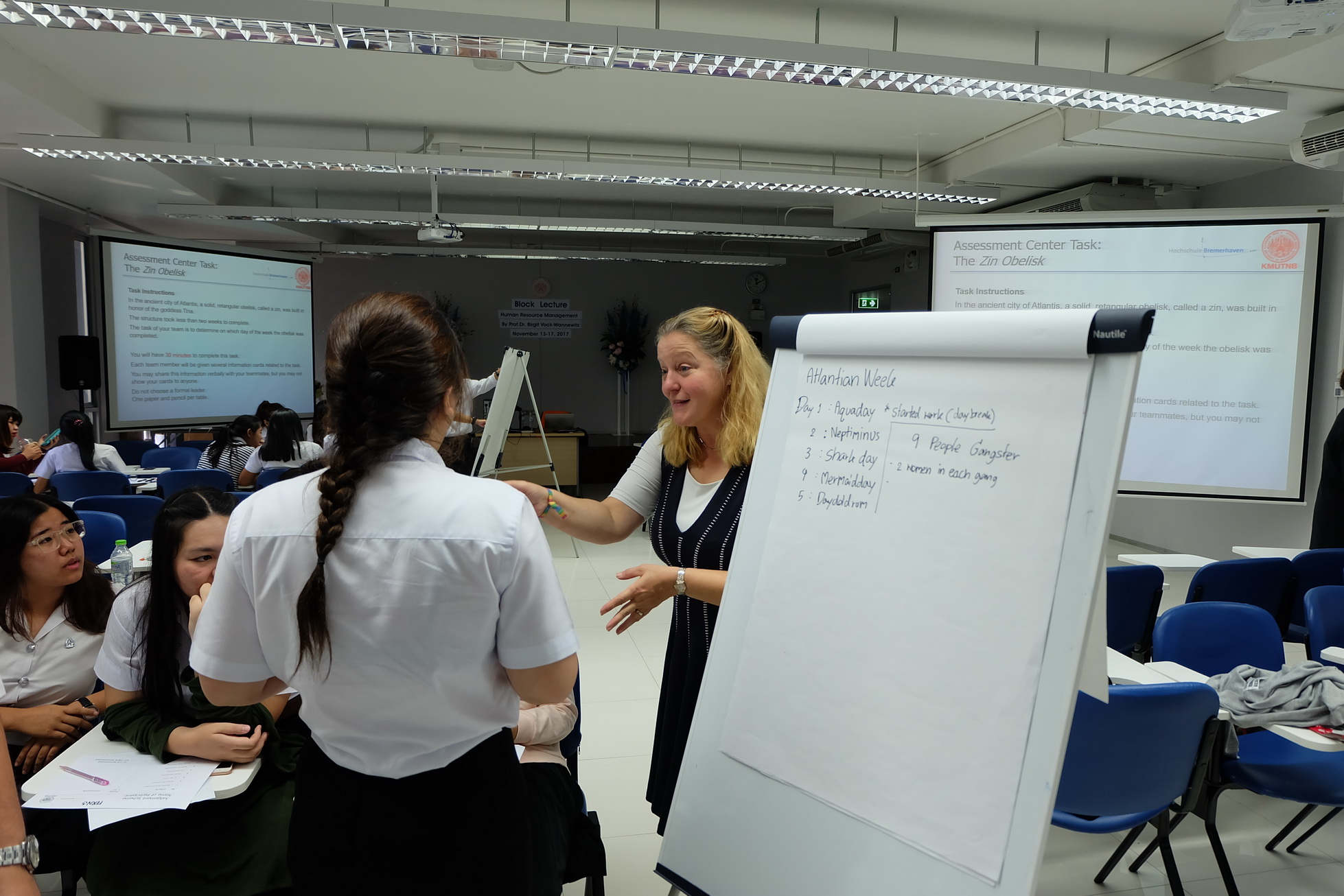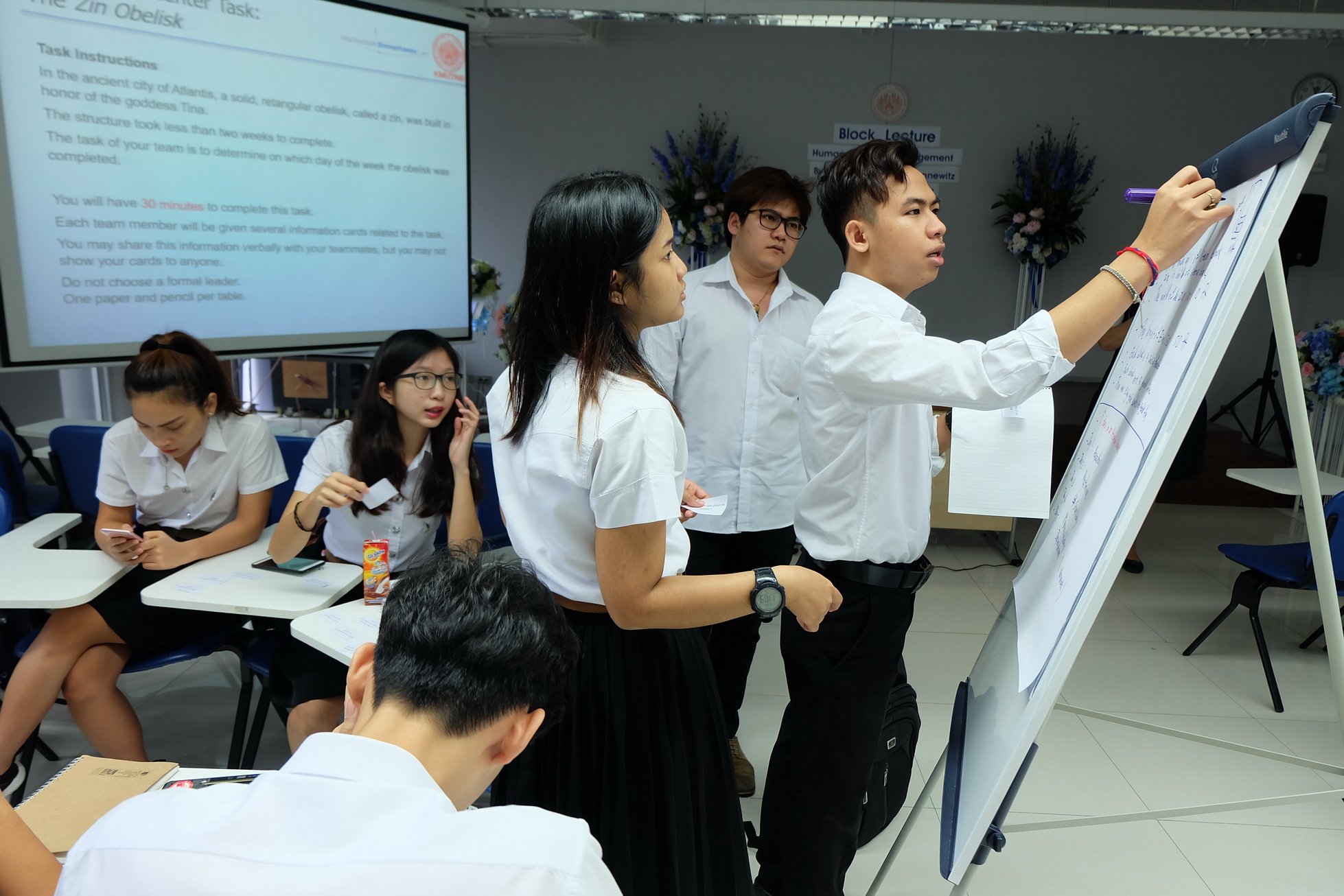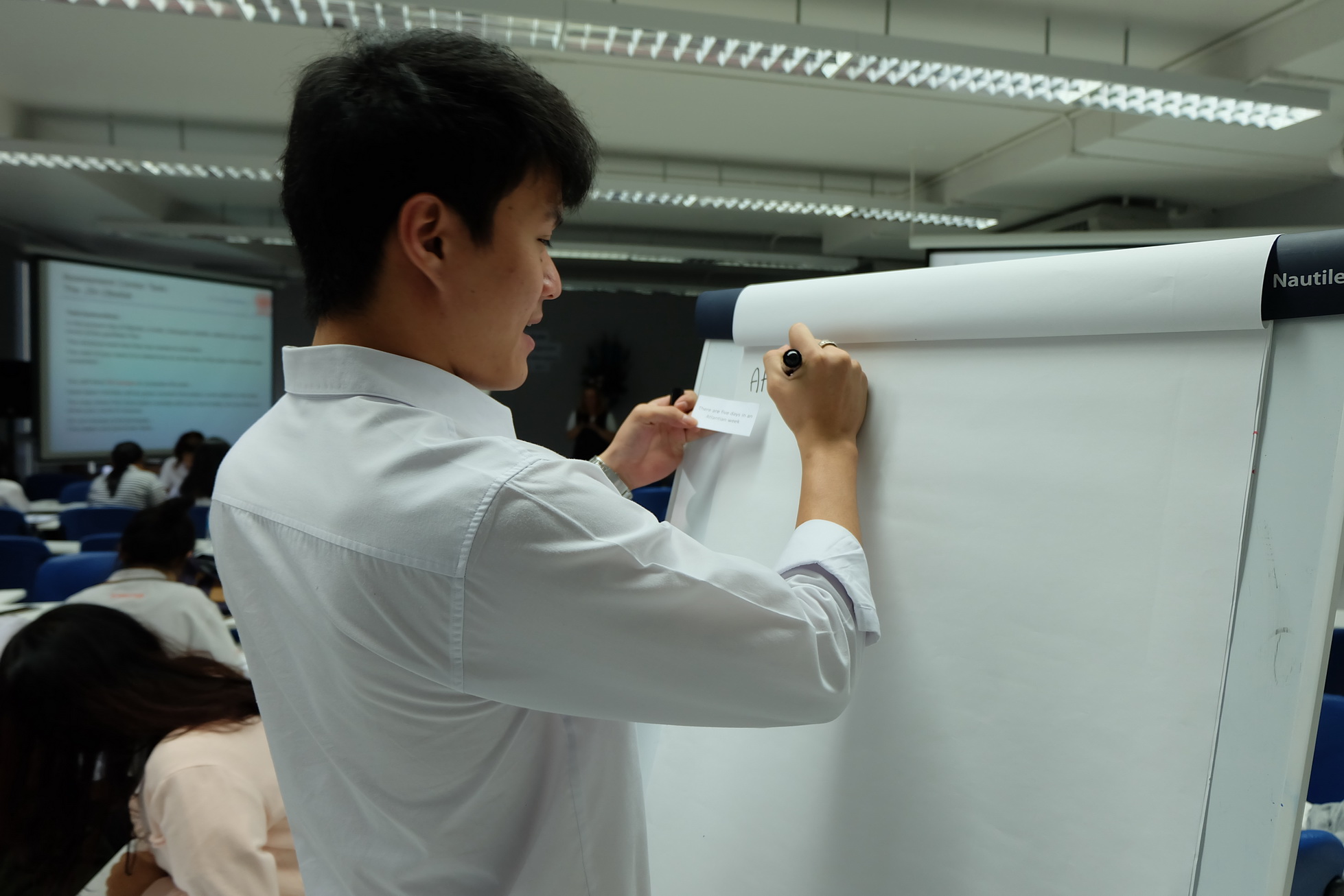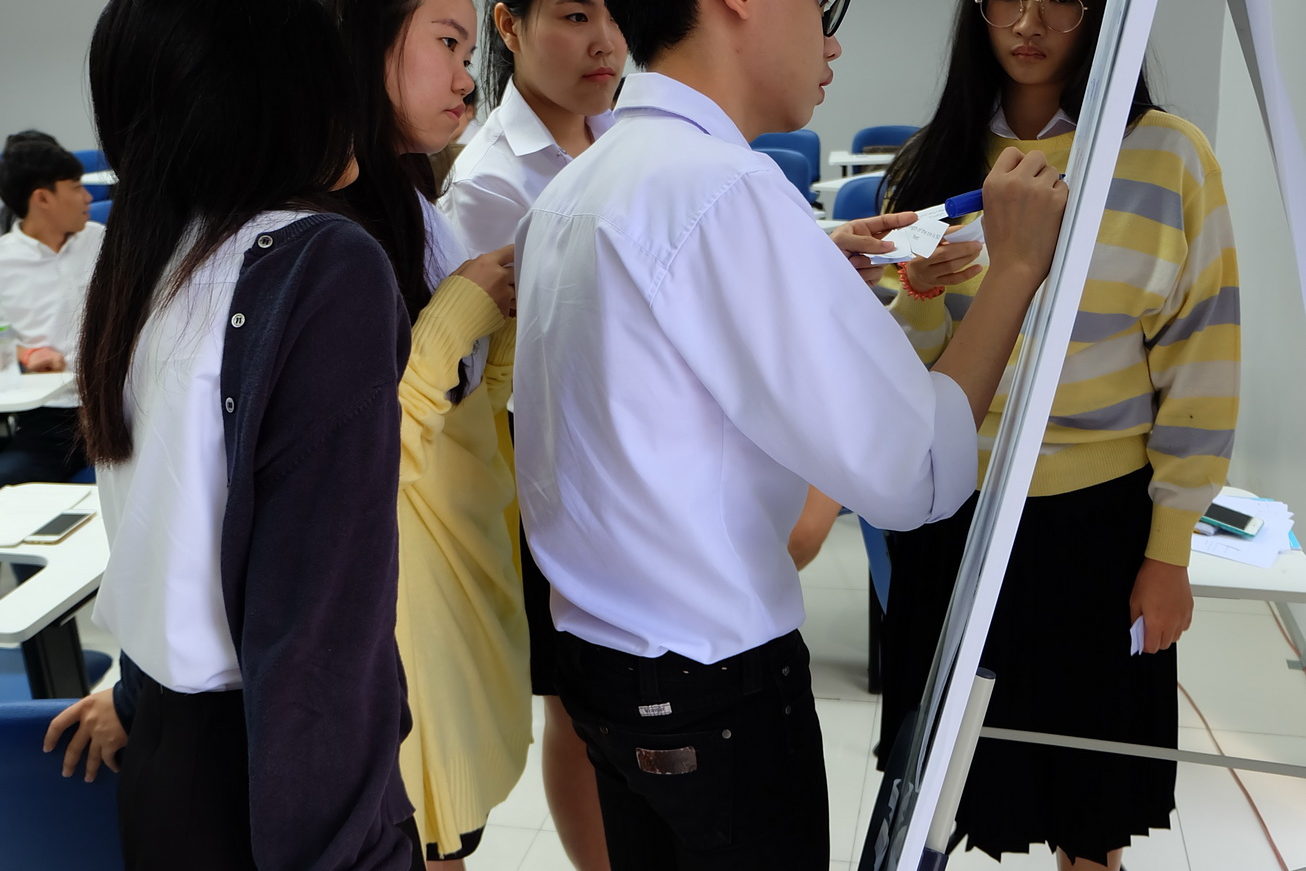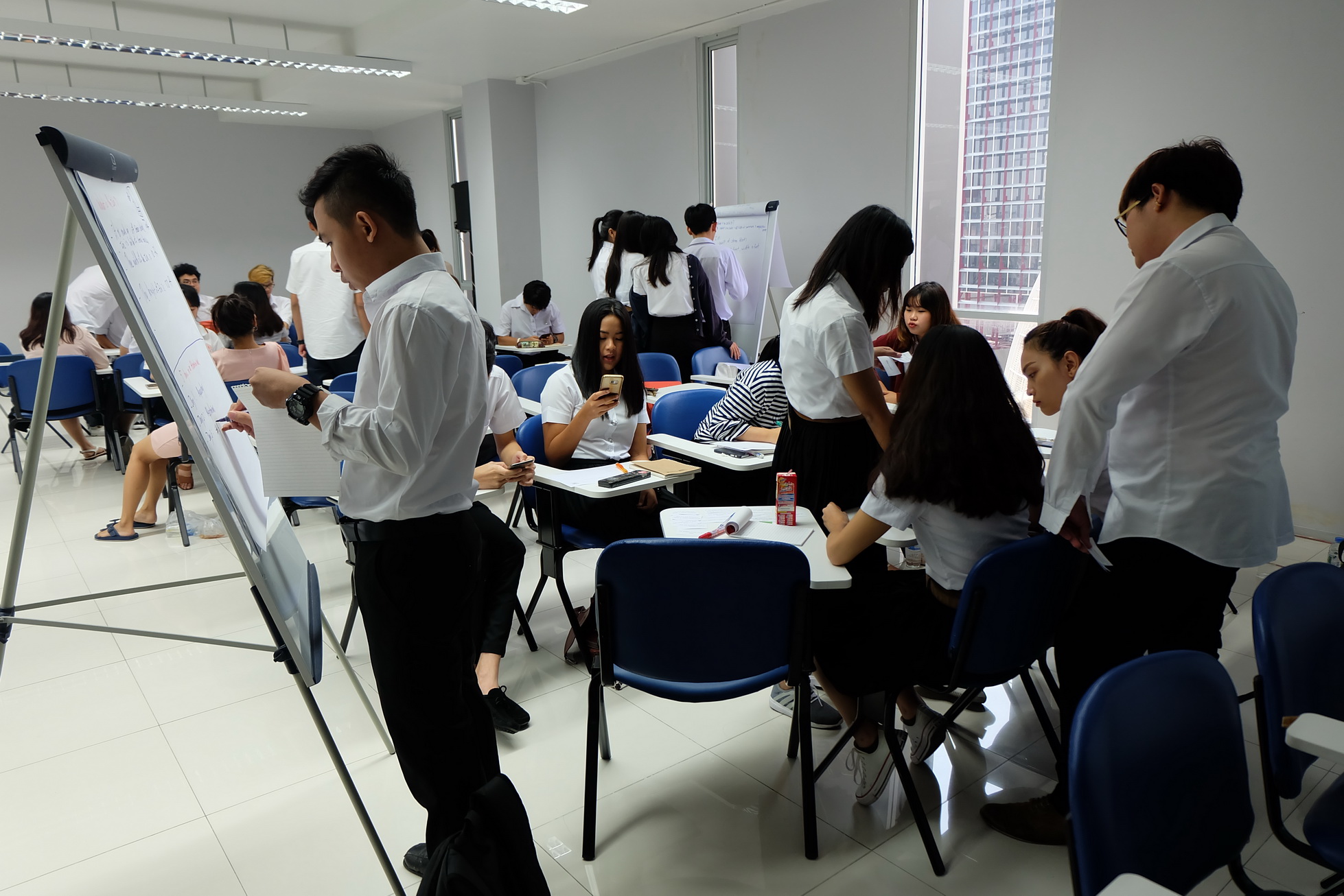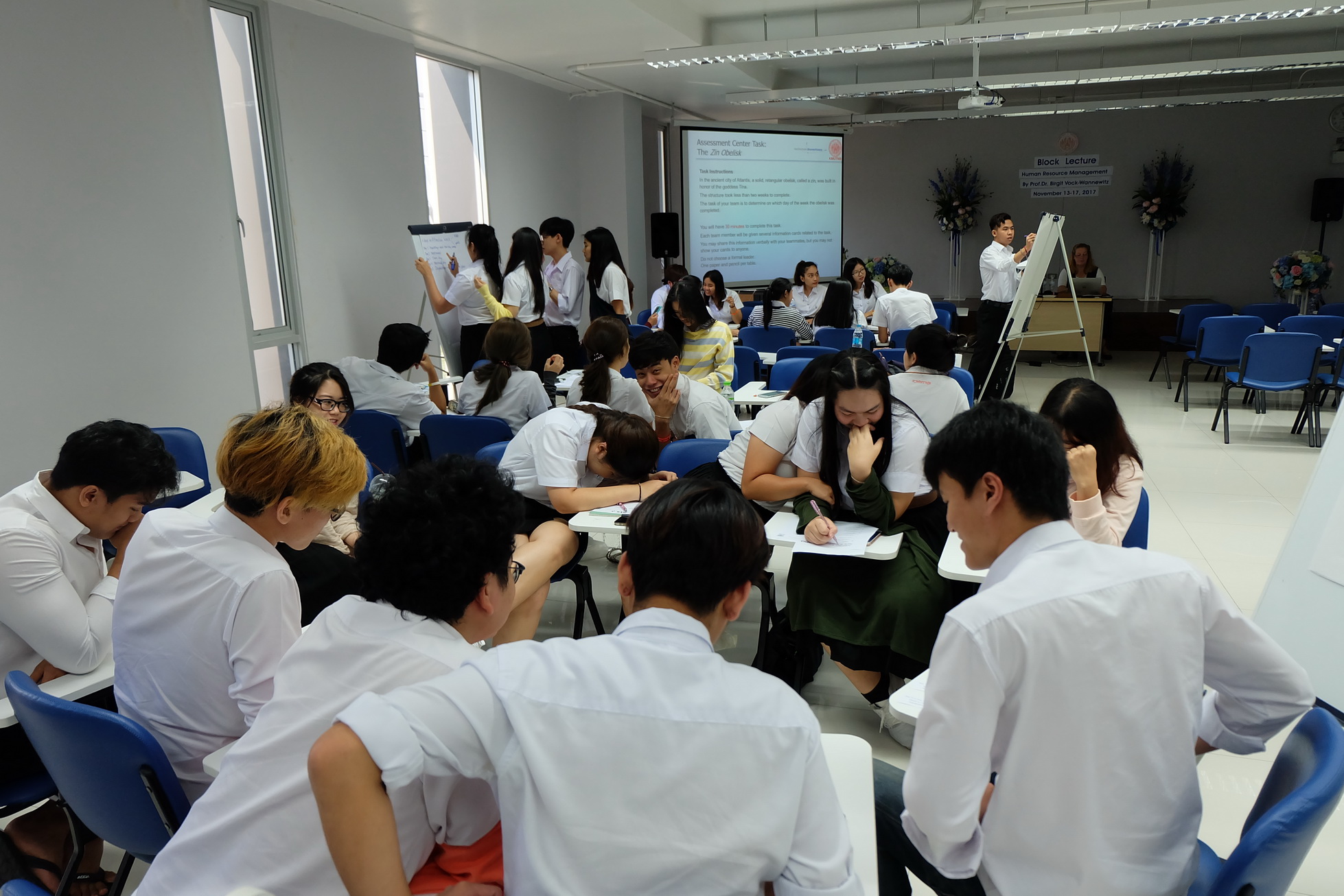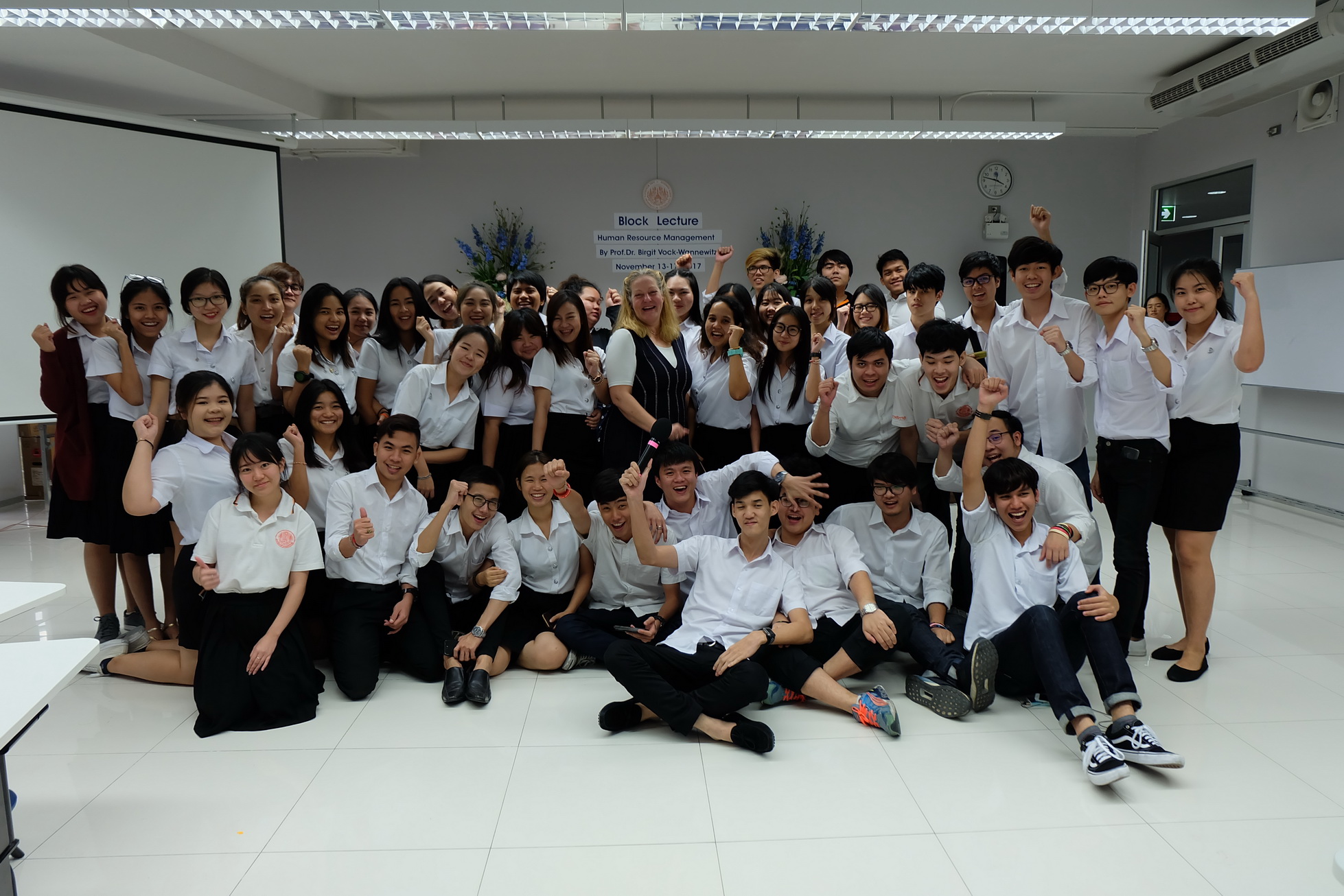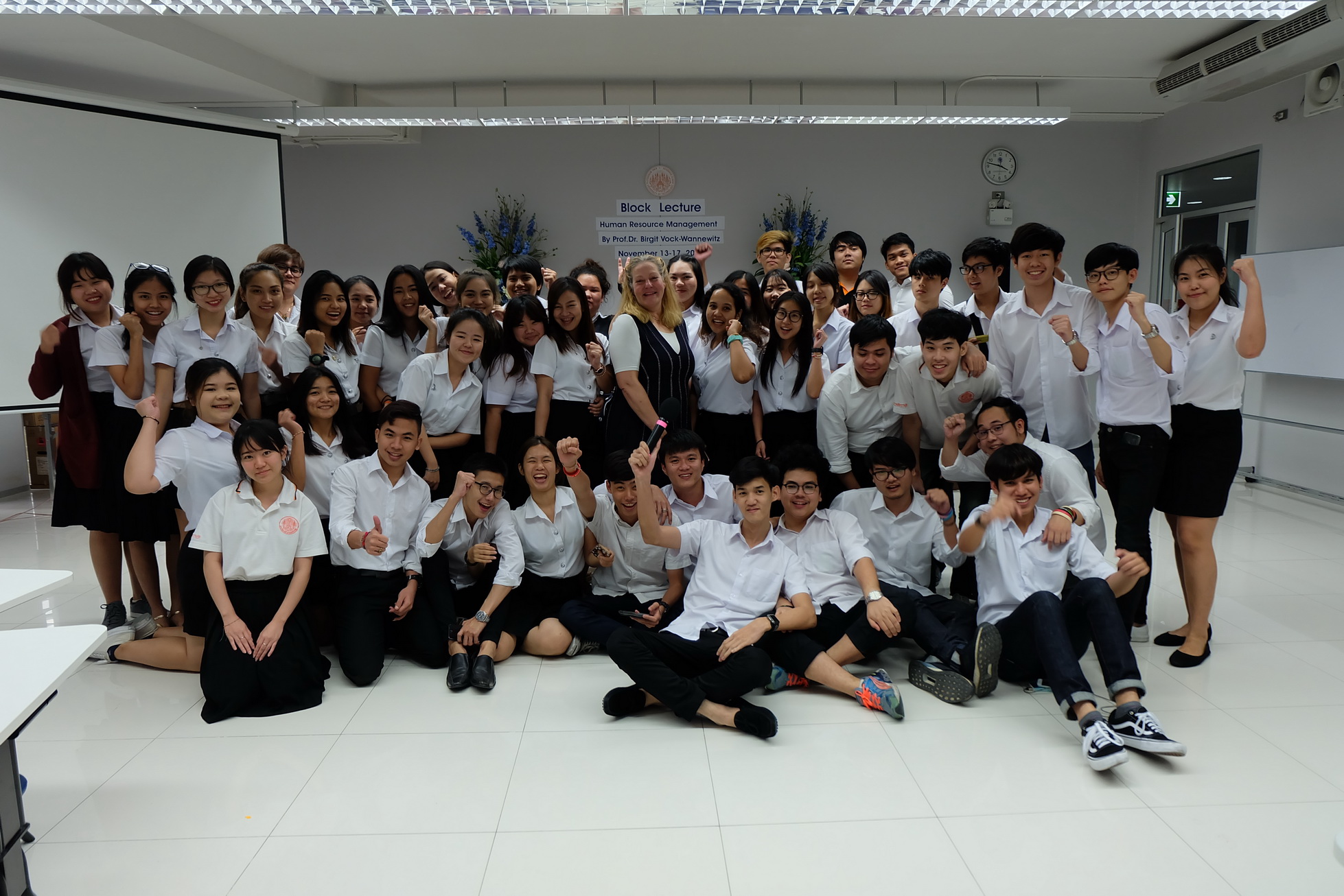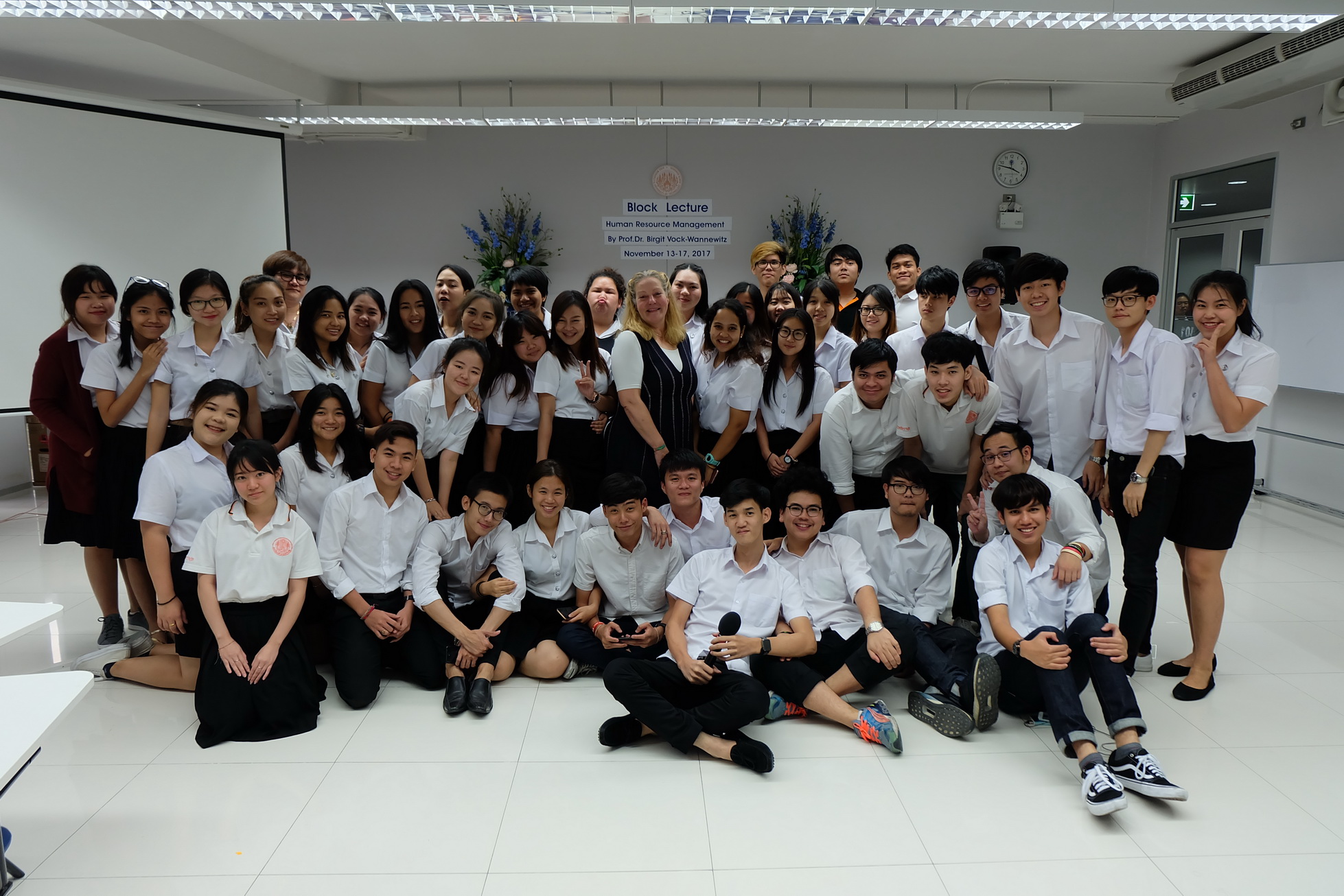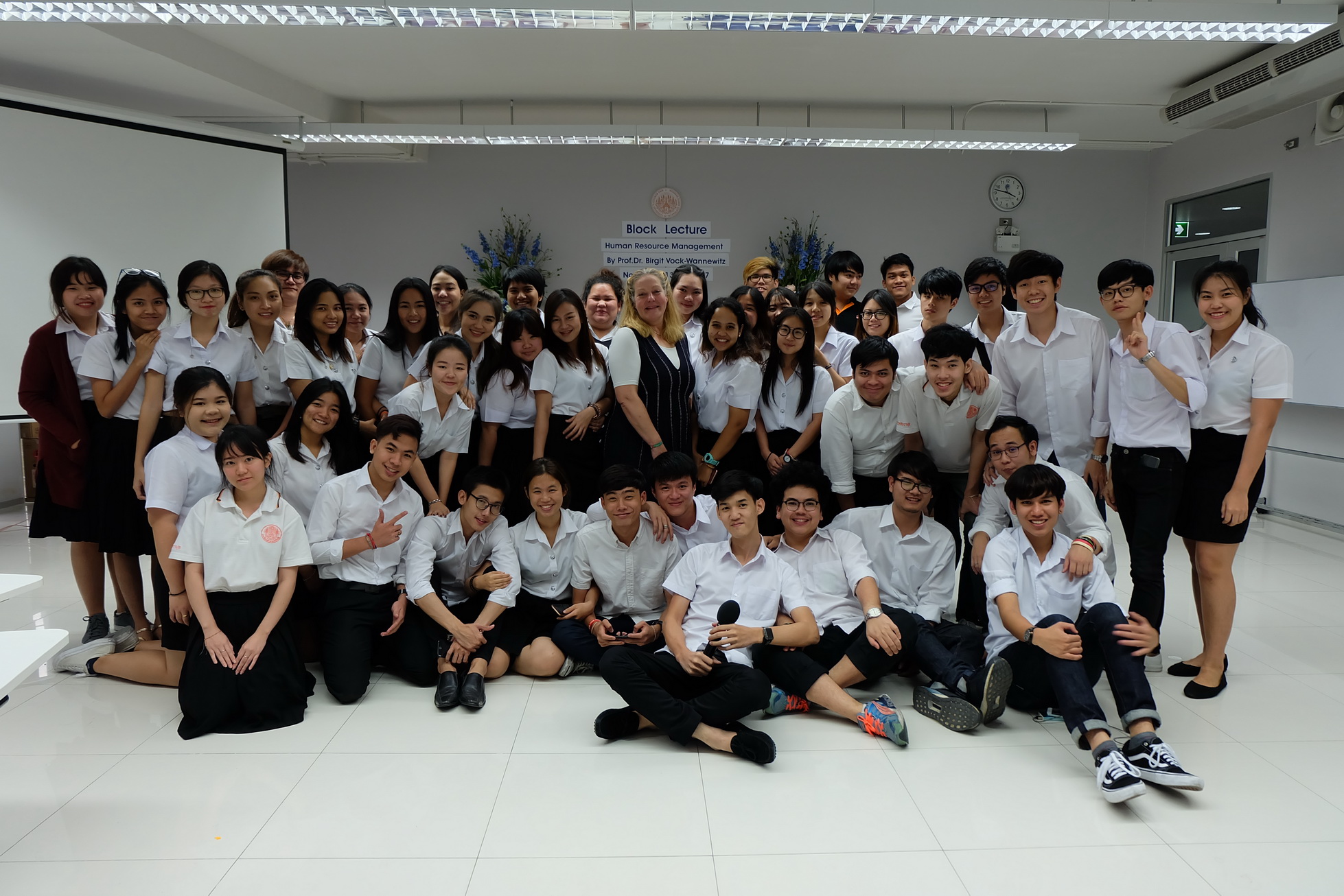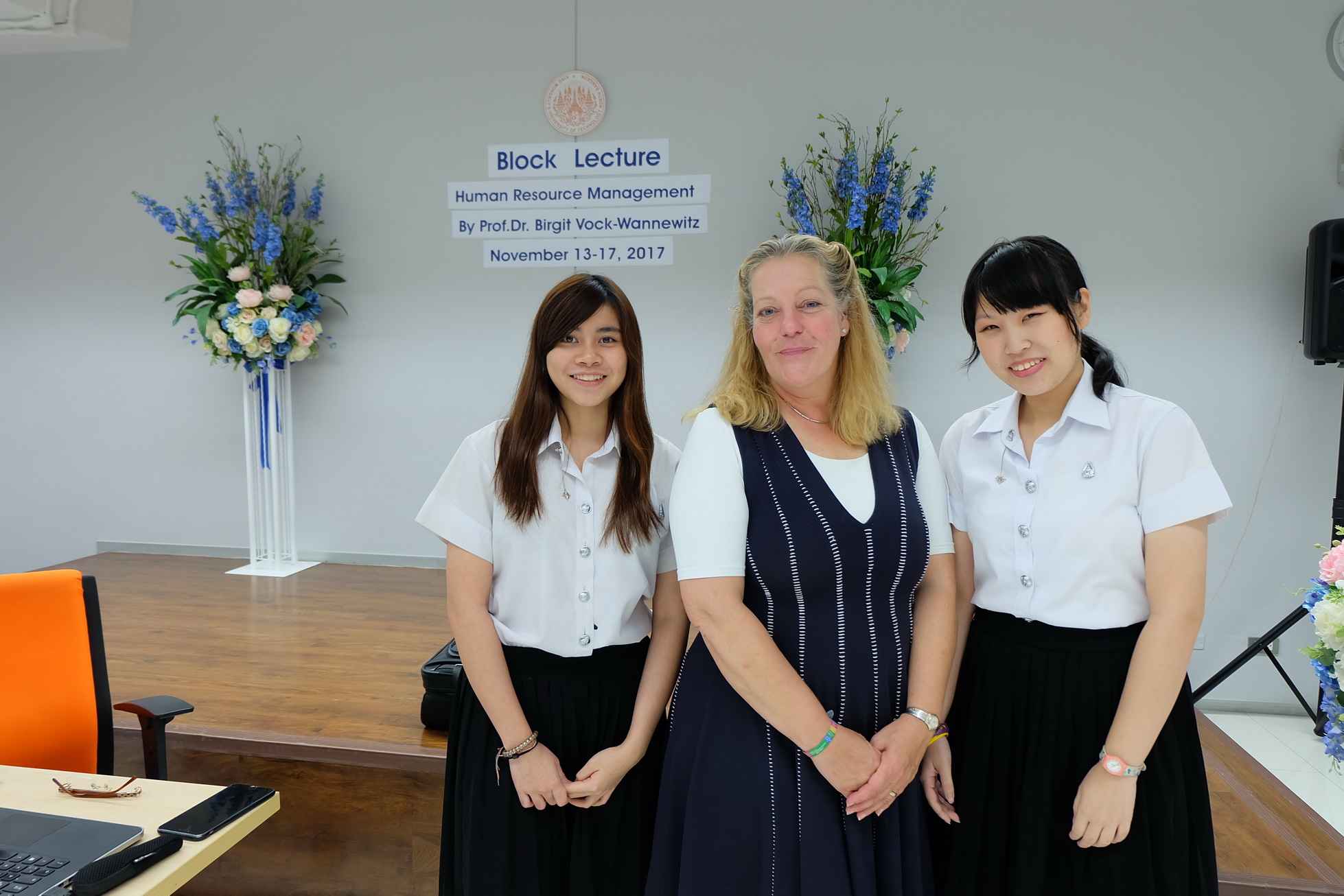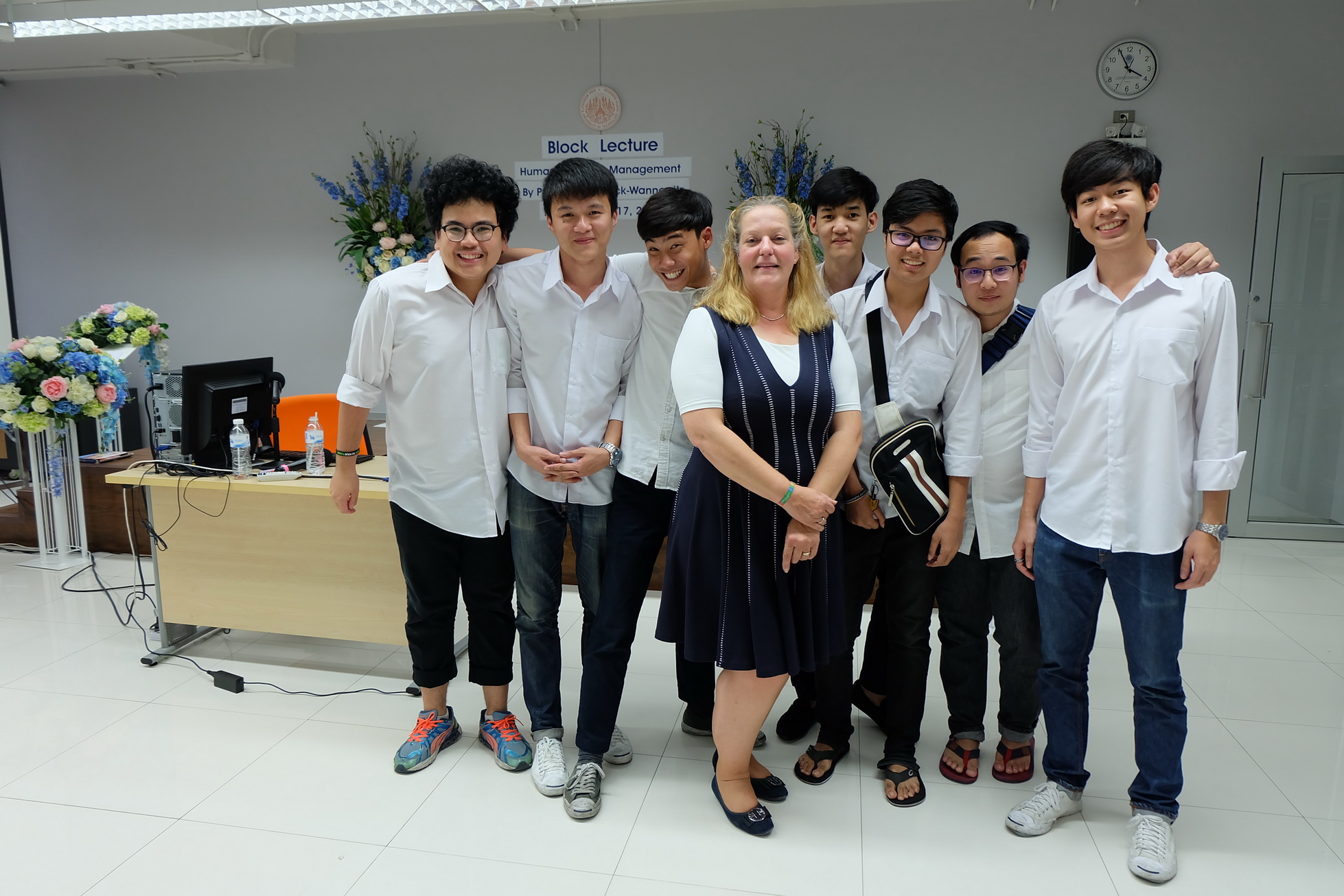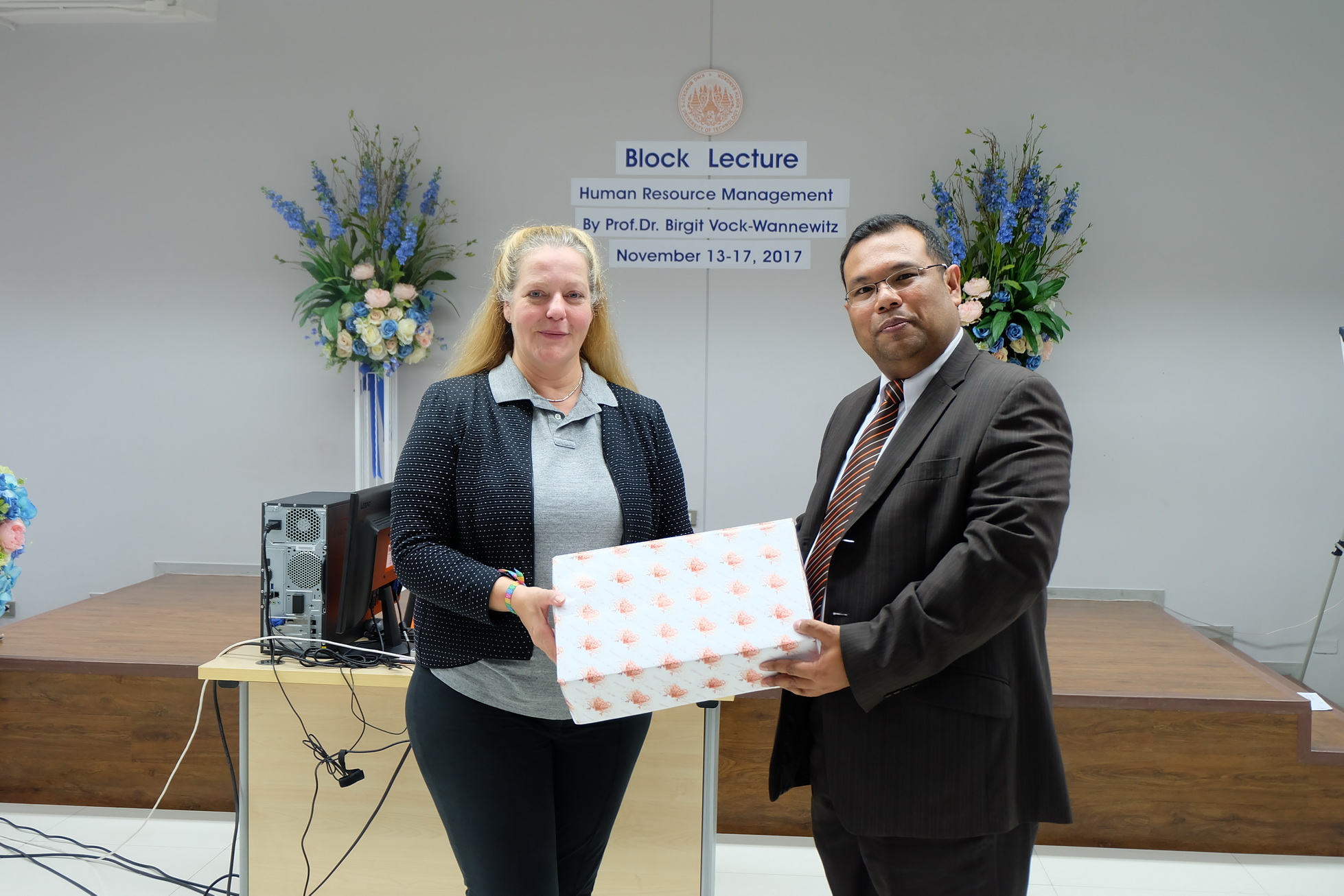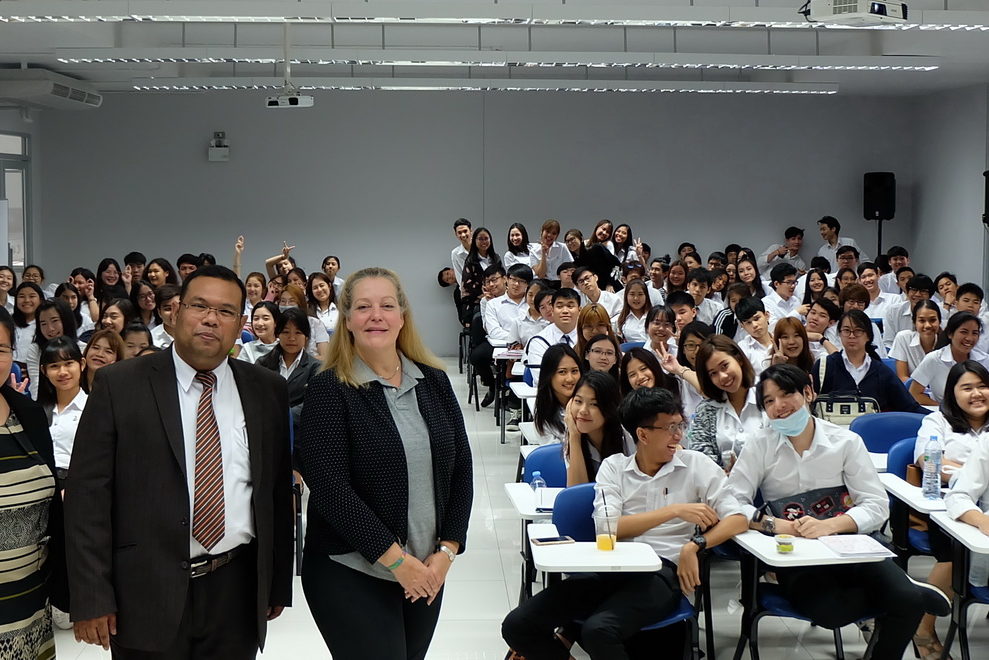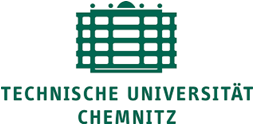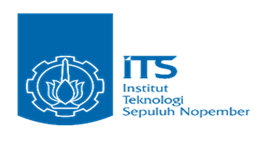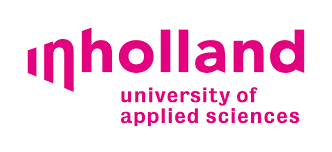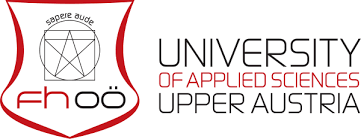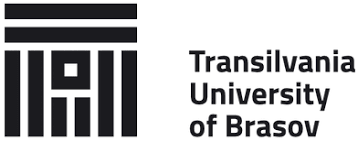Call for Papers : The 8th International Conference on Education 2022

The International Conference on Education 2022 is the 8th Edition of the successful conferences on Education organized by The International Institute of Knowledge Management. ICEDU is an Annual Conference started in Beijing, China (ICEDU 2015). After its initiation, two conferences were held in Kuala Lumpur, Malaysia (ICEDU 2017, ICEDU 2019) and two were held in Bangkok, Thailand (ICEDU 2016, ICEDU 2018). Given the Covid-19 Pandemic situation ICEDU 2020, ICEDU 2021 was turned to an online virtual Conferences. Today, the high standards, impact, and quality of the ICEDU conferences are highly recognized by the education related research community in the world.
King Mongkut’s University of Technology North Bangkok is one of organizing partners of the 8th International Conference of Education 2022.
Conference Website: https://educationconference.co/
Opportunity for IC Lecturers, Students and Staff:
– Special Discount Rates and Partial Scholarship Opportunities
– Opportunities to Publish in Scopus Indexed Journals
Important Dates:
– Abstract (500 words): 16 December 2021 (for IC lecturers, Students and Staff)
o Guidelines: https://educationconference.co/abstract-guidelines/
o Abstract Acceptance Notification: Within two weeks
– Conference Days: 24th – 26th March 2022
– Full Paper Submission Deadline: 13th April 2022
*More information & Abstract Submission for IC Lecturers: achacreeya.r@ic.kmutnb.ac.th
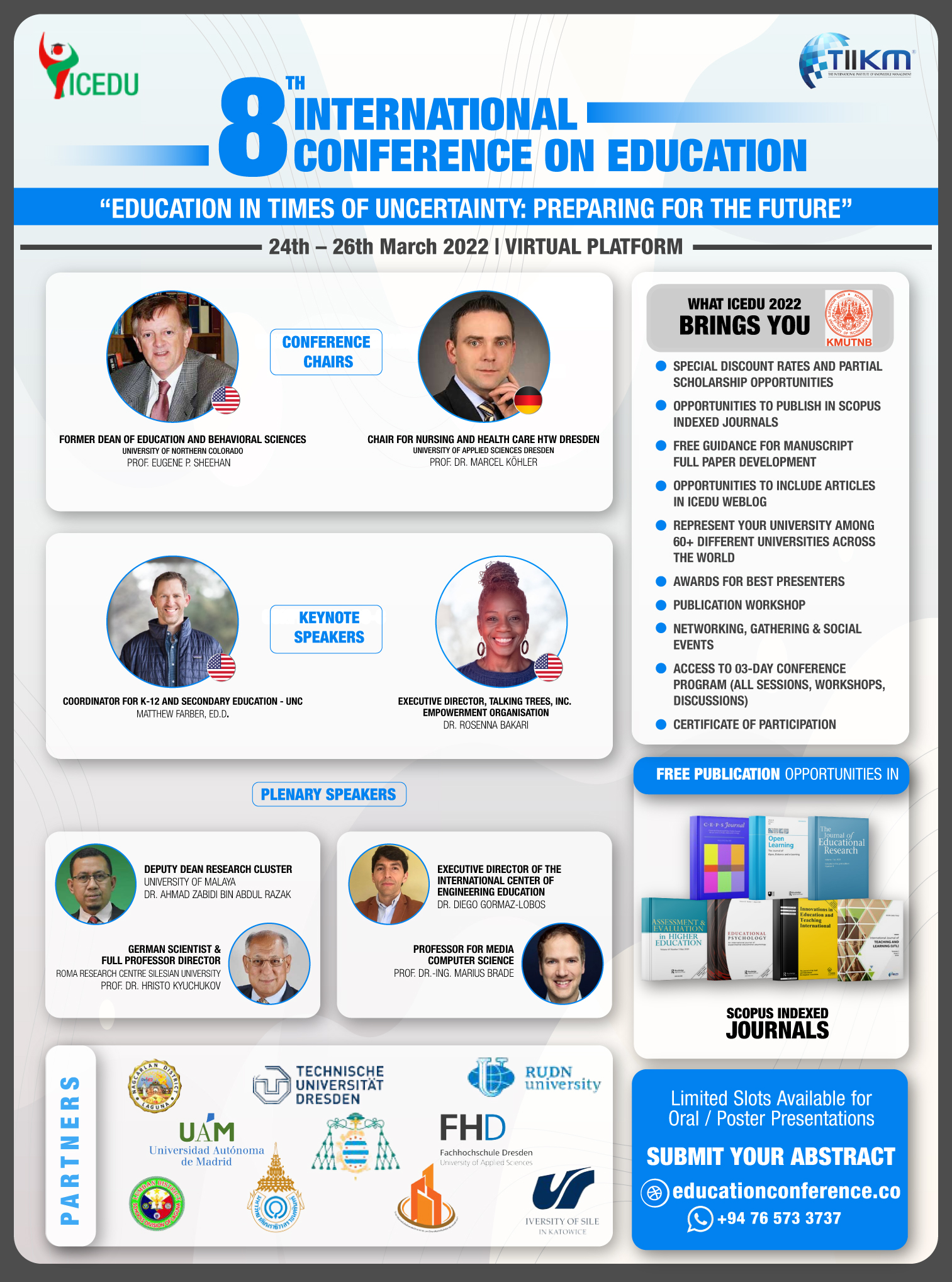
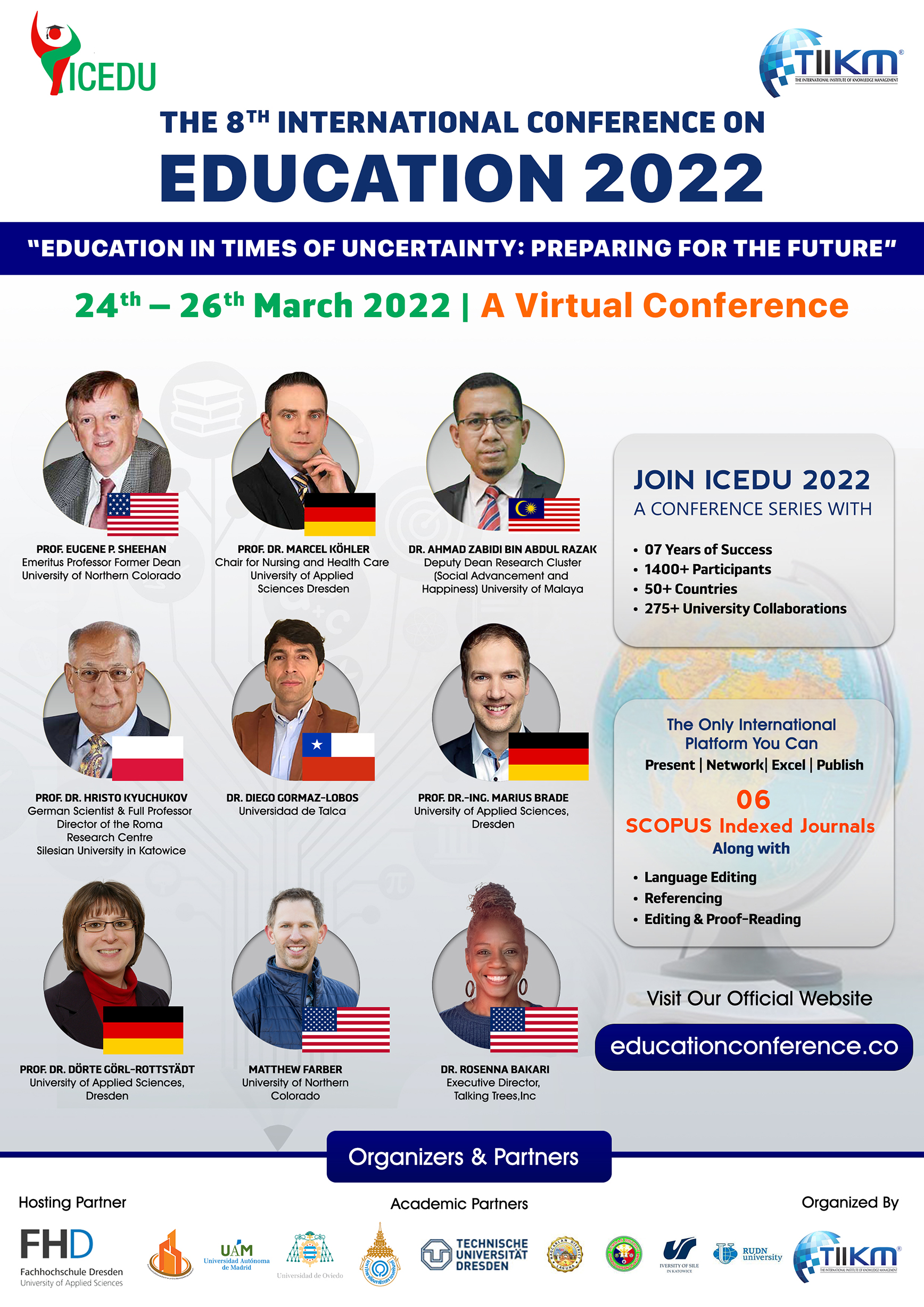
Topics of Interest for Submission include, but are not limited to:
| ASSESSMENT RELIABILITY AND VALIDITY • Assessing School Outcomes • Assessment Software Tools • Blended Learning • Causal Modeling in the Classroom • Culturally Relevant Assessments • Games and Experiential Learning • Measuring Teacher Quality • Reliability and Validity in Education • Using Tests to Advance Learning | CURRICULUM, RESEARCH, AND DEVELOPMENT • Action Research • Adapting Curriculum for Student Needs • Counsellor Education • Curriculum Development • Outcomes that Work • Qualitative Research in the Classroom • Special Needs Education • Teachers and Principals as Researchers |
| EDUCATION THEORY AND PRACTISE • Counselor Education • Education Practice Trends and Issues • Educational Foundations • Educational Measurement and Evaluation • Pedagogy • Teaching Materials and Courseware Construction | INNOVATIVE EDUCATIONAL PRACTICES • Applying Psychological Theories to Classroom Instruction • Developments in Teacher Preparation • Implementing Innovative Practices • Inquiry-Based Instruction • Language Instruction • Professional Development for Educators • The Role of the Principal in Fostering Academic Achievement • Virtual and Augmented Reality |
| PANDEMIC-BASED EDUCATIONAL RESEARCH • Effects of Prolonged Time Away from the Classroom • Home-based Learning • Motivation to Learn from Home • Teacher Stress during the Pandemic • Teacher-Parent Contact during the Pandemic • Technological Innovations • Virtual Classroom Management | OTHERS • Adult Education • Art Education • Business Education • Foreign Languages Education & Applied Linguistics • Health Education • Health Education • Mathematics Education • Music Education • Social Studies Education |
| CHILD AND FAMILY EDUCATION • Comparative Child Development • Early Childhood Education • Elementary Education • Home Education • Parents as Teachers • Primary Education • Secondary Education | EDUCATIONAL POLICY AND LEADERSHIP • Academic Advising and Counselling • Continuous Education • Education and Management • Education Export • Education Policy and Leadership • Education, Research and Globalization • Educational Administration • Higher Education • Lifelong Education • Public Education Policy · Workplace Learning and Collaborative Learning • Rural Education • Student Affairs • Teacher Education • Vocational Education and Training |
| EFFECTIVE TECHNOLOGY IN THE CLASSROOM • Digital Literacy • From Pencils to IPads: Advances in Instructional Technology • Levels of Technology Implementation • Teaching with Technology • Technology and Literacy | LEARNING SCIENCE • Applied Behavior Analysis • Brain and Behavior: Implications for Teaching • Cognitive Psychology • Linguistics in Blended Learning Environments • Machine Learning • School Psychology • Social-Emotional Learning • STEM Education |
| WORKING WITH DIVERSE POPULATIONS • Culturally Linguistically Diverse Students • Culturally Responsive Pedagogy • Professional Development • School Culture • Training Educators to Work with Students from Diverse Backgrounds • Trauma-Informed Teaching • Using Technology to Reach Every Child |






